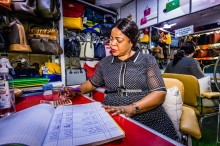Financial inclusion: How does Oikocredit select its partners?
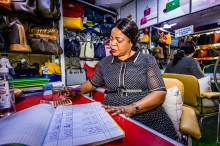 14 September | 2023
14 September | 2023 Globally, 1.4 billion adults lack access to basic financial services, with the majority being women. Financial inclusion aims to create opportunities for this group of unbanked individuals.
One approach is by providing access to loans, and these are often accompanied by training and business support. While the loan provided may be small, it can have a large impact. A loan can enable a borrower to start or expand a business, grow a farm, educate their children, or navigate through crises caused by natural disasters or illness.
In the 1970s, Oikocredit began providing loans to organisations active in financial inclusion. Today the cooperative has more than 300 partner companies in this sector across Africa, Asia and Latin America and the Caribbean. In this interview, Dave Smit, Director of Impact Investments at Oikocredit provides insights into our collaboration with these partners.
According to Oikocredit Germany's website, ‘Oikocredit is convinced that money can do good. It can create opportunities for people and have a positive impact’. Oikocredit achieves this impact with the help of its partners. What criteria does Oikocredit use to select these companies?
Choosing the right partners is a very important point for Oikocredit. From the first handshake to the final contract can take a long time, which is justified as we are diligent in partner selection. To ensure thorough due diligence, Oikocredit is using two scorecards. The first is the PVR – the Project Viability Risk scorecard, which assesses the financial performance of the company.
The second is the Environmental, Social, and Governance (ESG) scorecard, which analyses the environmental and social impact and the governance of a potential partner. Oikocredit considers seven important factors, including preventing end clients’ indebtedness and ensuring fair and transparent pricing. These criteria and protection principles are based on international best practices and impact investment market standards.
That makes it clear why the process can take a long time…
However, this lengthy process is not a negative aspect because Oikocredit’s partners typically maintain long-lasting relationships [with us]. Many partners receive multiple repeat loans, and active working relationships often exceed 10 years. The partner with whom Oikocredit has the longest-standing relationship is Banco Pyme de la Comunidad from Bolivia. We approved the first facility to them in June 1990 – 33 years ago.
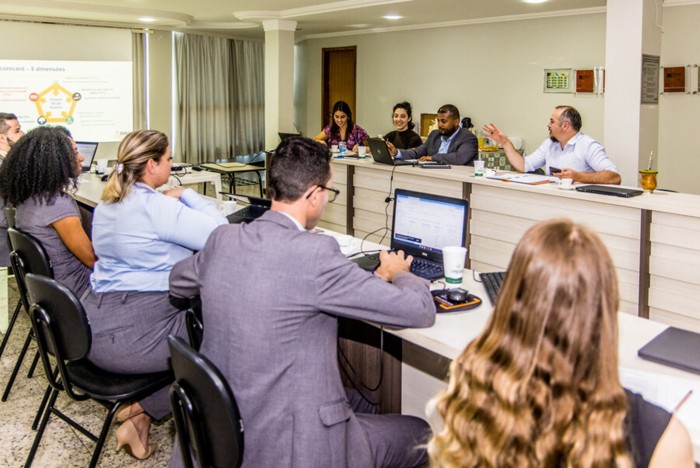
How about our partners’ end-clients? Does Oikocredit monitor whether they experience a positive social impact?
Absolutely. Oikocredit consistently monitors this aspect, utilising the ESG scorecard. Social performance is assessed at the beginning of the relationship, and progress is monitored on an annual basis throughout the loan’s duration. This feedback is instrumental in measuring the social impact of our joint work. Oikocredit has a dedicated team, the social strategy and social impact team, and this monitoring and evaluation is a joint responsibility of the regional teams and the social strategy and social impact team.
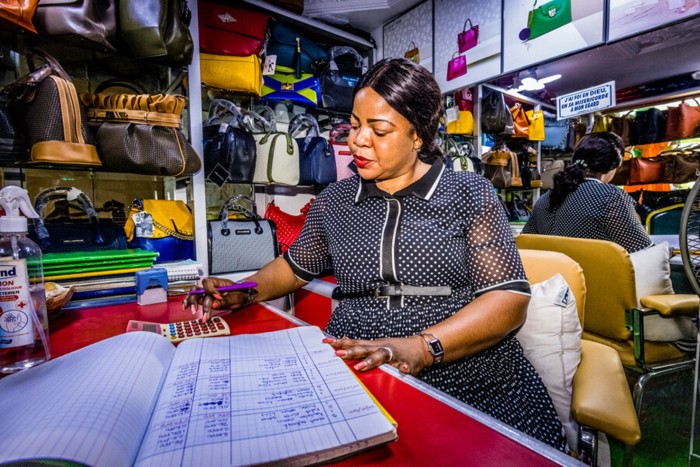
Can you give us an insight into the work of the social strategy and social impact team?
We are in constant exchange with our partners worldwide. For example, last year we conducted an end-client survey in collaboration with 19 partners and other organisations, interviewing 16,500 clients. We posed 30 questions in the local languages, focusing on their wellbeing, the impact of financing and the effects of climate change.
The survey yielded interesting results, with 90% of end clients indicating ‘Yes, there's a positive effect on my wellbeing of the loan which I got indirectly from Oikocredit’. We find this feedback very important. As far as I know, Oikocredit is the only impact investor that undertakes an end-client survey. We plan to do the survey again this year, involving more than 30 partners.
Does the end-client survey help monitoring potential negative side effects?
Of course. We closely examined the 10% of clients who did not perceive a positive effect. With the findings from the study, we aim to reduce that number by developing new products or initiatives. For instance, survey respondents in Ecuador mentioned that they sometimes have cash available but lack a safe place to store it for a short period of time. Based on this information, our partner developed a special short-term savings product to address that need.
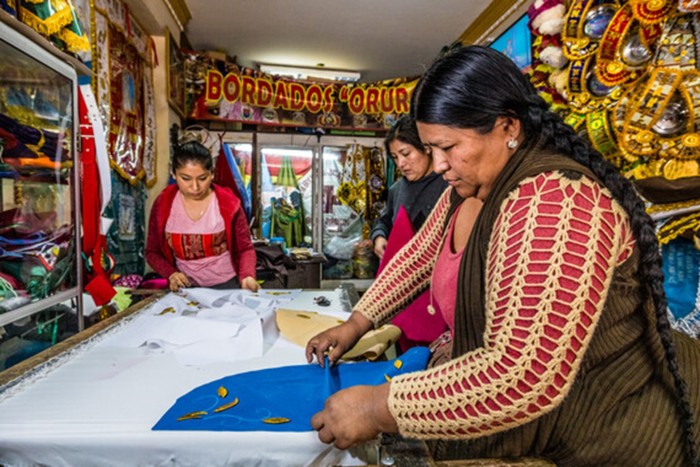
Do you meet face-to-face with partners on a regular basis?
Yes, regular face-to-face meetings with our partners are an integral part of our collaboration. They allow us to strengthen our relationships and better understand partners’ operations and impact on the ground. In the past two months I visited Côte d'Ivoire and India to meet with partners there and gain firsthand insights into their work and the local context. These visits help foster closer connections and enable us to work together more effectively. The next trips being planned are to Latin America and Nigeria.
Thank you for the interview!
Thank you for giving me the opportunity to provide more insight in the good work we try to do with Oikocredit!
Archive > 2023 > September
- 27/09/2023 27/09/2023, 11:01 - How impact investing empowers women: Interview with Oikocredit’s Adama Bah
- 20/09/2023 20/09/2023, 15:12 - Oikocredit Impact Report 2023 indicates we are making a difference at scale
- 15/09/2023 15/09/2023, 14:52 - Oikocredit welcomes opportunity for dialogue following OECD NCP submission acceptance
- 14/09/2023 14/09/2023, 11:17 - Financial inclusion: How does Oikocredit select its partners?
- 01/09/2023 01/09/2023, 12:10 - Introducing an update to Oikocredit’s Participation Terms

